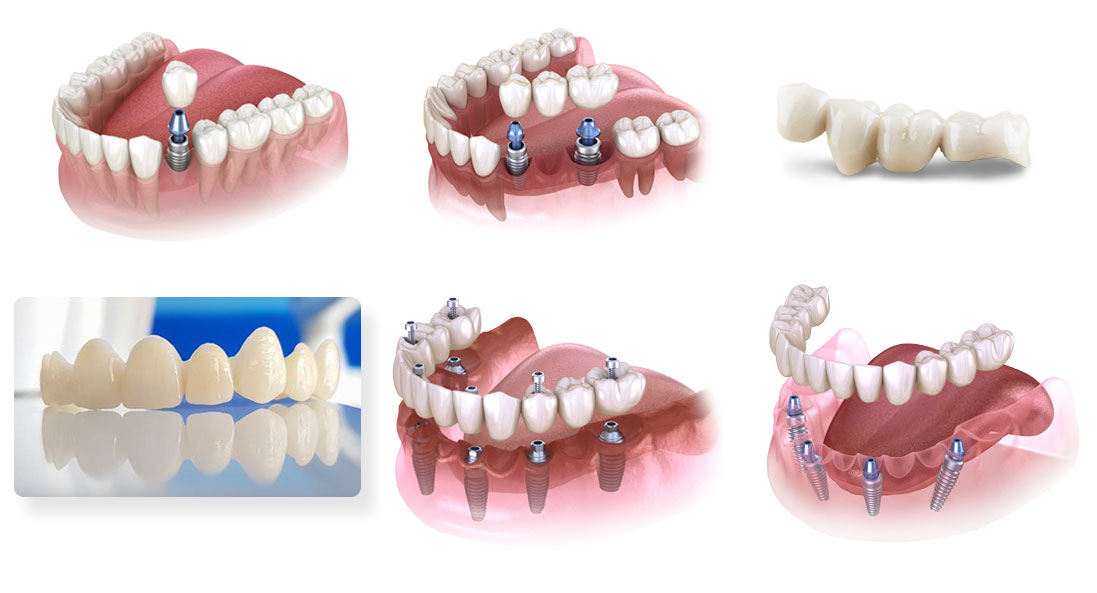
Have you lost one or more teeth, or do you have one that needs to be restored? Are you looking for a fixed and aesthetic alternative that allows you to chew safely and smile confidently? At Clínica Áureo in Palma, we offer personalized fixed dental prosthesis treatments, designed with a modern, minimally invasive approach that respects your oral health.
Fixed dental prostheses are structures that are permanently placed on natural teeth or implants to restore or reinforce damaged or missing teeth. They blend harmoniously with your smile and naturally restore oral functionality. Unlike removable prostheses, they do not need to be taken out for cleaning or sleeping, significantly improving comfort, stability, and safety.
Visit our page on removable dental prostheses as well to understand the differences.
When the tooth can still be preserved, we reinforce it with individual crowns or cemented dental bridges over existing teeth. This is a minimally invasive option that helps preserve bone, gum tissue, and chewing function.
We preserve your natural tooth whenever possible
At Clínica Áureo, we prioritize conserving your original teeth. Whenever the structure allows, we work on the existing tooth to restore its function and avoid more aggressive treatments.

When it is not possible to preserve the tooth, we place one or more dental implants that serve as artificial roots to support a fixed prosthesis: a crown, bridge, or even a full arch.
This solution offers:

From your first visit, you’ll be supported by an experienced dental team that combines technical excellence with a caring and professional approach.
We use metal-free ceramic and zirconia — highly aesthetic, durable, and biocompatible materials. They blend seamlessly with your natural teeth and ensure long-lasting results, provided you maintain good oral hygiene habits.
Fixed prostheses require the same care as your natural teeth:
Each case is unique, which is why we provide an individual, no-obligation assessment. At Clínica Áureo, we offer tailored financing options to make it easier for you to restore your smile.
If you are thinking about improving your oral health with a fixed prosthesis — whether on teeth or implants — we invite you to visit us. We’ll explain all your options with clarity, honesty, and professionalism.
Your smile, our priority.





